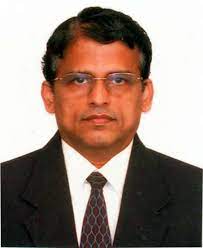
AV Srinivasan
AVS Clinic, India
Title: Cerebello cognitive and affective syndrome-recent perspectives
Biography
Biography: AV Srinivasan
Abstract
Cerebello cognitive affective syndrome (CCAS; Schmahmann’s Syndrome) is characterized by deficits in executive function, linguistic processing, spatial cognition and affect regulation. The causes of CCAS include cerebellar agenisis, dysplasia and hypoplasia, cerebellar stroke, tumour, cerebellitis, trauma, PSP, Multiple System Atrophy. This is also seen in children with prenatal early postnatal or developmental diseases. Clinical Impairment is seen in planning, set shifting, abstract reasoning, verbal fluency and working memory with distractibility and inattention. CCAS challenges the traditional view of cerebellum being predominantly motor functions and focusses on the non-motor function also. This is because of its connection to cerebral cortex and limbic system. One case of CCAS is discussed with video segments. Case 1: An engineering graduate student met with an accident and was unconscious for hours. He had loss of spatial cognition with perseveration, distractibity and inattention. He had spatial disorganization with visio-spatial memory affected. He had blunting of affect and inappropriate behaviour. He slowly recovered and still has cognitive dysfunction and cerebellar science. He developed depression and needed psychiatric help. In conclusion, an unified paradigm for cognitive science with simplified neurodynamics and different levels of modelling or important. Recurrent neural network, reservoir computing => psychological spaces. The open questions includes in this are 1. High dimensional P-spaces with finsler geometry needed for visualization of the mind events. At the end of the road, the physics – Like theory of events in mental spaces, mind as the shadow of neurodynamics can give us an absolute scientific space for this newer syndrome in neurological literature.

